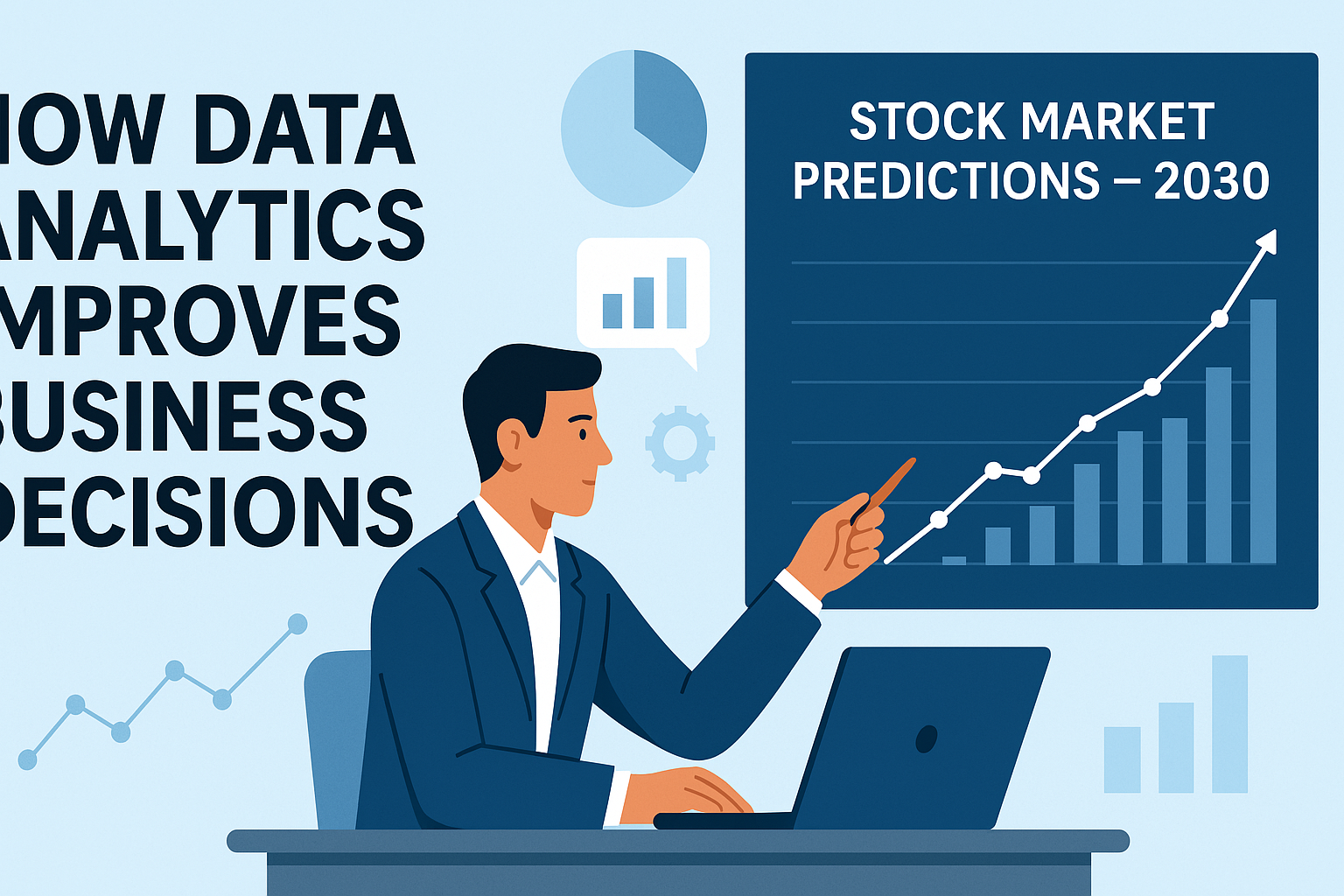Data is everywhere. Every click, purchase, review, and social media post generates valuable information. But data alone is just noise. The real power lies in analyzing it to make smart business decisions. This is where data analytics steps in, transforming raw numbers into meaningful insights. So, how does data analytics improve business decisions? Let’s dive in.
The Role of Big Data in Business Growth
Companies deal with massive amounts of data every day. This is what we call big data.These are huge datasets that are too complex for traditional processing methods. But when businesses harness big data properly, they gain a competitive edge.
Take e-commerce, for example. Online retailers track customer browsing habits, past purchases, and even abandoned carts. By analyzing this data, they can personalize recommendations, optimize pricing, and predict trends. The result? More sales and happier customers.
Big data also helps in logistics. Shipping companies use it to find the fastest routes, reduce delivery times, and cut costs. Airlines adjust ticket prices in real time based on demand. Even hospitals use big data to predict patient admissions and improve resource allocation.
Business Intelligence: Turning Data into Strategy
Data analytics isn’t just about collecting numbers. It’s about understanding them. This is where business intelligence (BI) comes in. BI tools help companies visualize data, detect patterns, and make data-driven decisions.
For example, imagine a restaurant chain tracking customer feedback. If multiple locations receive complaints about slow service, managers can investigate the cause. Perhaps understaffing during peak hours. With BI, they can adjust staffing schedules based on customer flow, improving service without unnecessary costs.
Retailers also benefit. A clothing brand might analyze sales data to see which products are performing well in different regions. If winter coats are selling fast in London but not in Madrid, they can adjust inventory accordingly. This prevents overstocking and maximizes profits.
Data-Driven Strategies: Making Smarter Business Moves
Businesses that rely on gut feelings alone risk making costly mistakes. Data-driven strategies provide a solid foundation for decision-making.
1. Better Customer Insights
Understanding customer behavior is crucial. Data analytics helps businesses segment their audience based on demographics, preferences, and buying habits. This allows for personalized marketing.
Think about Netflix. The platform analyzes viewing history to recommend shows tailored to individual users. This keeps subscribers engaged, reducing cancellations.
Similarly, supermarkets analyze shopping habits to offer targeted discounts. If a customer frequently buys baby products, they may receive discounts on diapers and baby food. This personalized approach boosts customer loyalty.
2. Improving Operational Efficiency
Efficiency is key to profitability. Businesses analyze data to identify bottlenecks and streamline operations.
Manufacturers use predictive analytics to prevent equipment failures. By monitoring machine performance, they can schedule maintenance before breakdowns occur, reducing downtime and repair costs.
In the hospitality industry, hotels use data analytics to forecast demand. They adjust room rates accordingly, maximizing revenue during peak seasons while attracting guests during low-demand periods.
3. Reducing Risks and Fraud
Fraud costs businesses billions every year. Thankfully, data analytics can detect unusual patterns and prevent financial losses.
Banks use machine learning algorithms to spot fraudulent transactions. If an unusual spending pattern appears on a customer’s account, the system flags it for review. This protects both customers and financial institutions.
Even insurance companies benefit. By analyzing claims data, they identify fraudulent claims and reduce unnecessary payouts.
4. Enhancing Employee Performance
Employee productivity is another area where data analytics shines. Businesses track performance metrics to identify strengths and areas for improvement.
For instance, sales teams analyze customer interactions to see what works and what doesn’t. If data shows that a particular sales pitch leads to more conversions, teams can refine their approach.
Tech companies also use data to improve workplace culture. By analyzing employee feedback, they can implement changes that boost job satisfaction and reduce turnover.
Final Thoughts
As the business landscape gets increasingly complex, making informed decisions is no longer optional. It’s a necessity. And data analytics is crucial in this regard. It helps businesses understand their customers, improve efficiency, reduce risks, and stay ahead of competitors.
The best part? You don’t need to be a tech giant to use data analytics. Small businesses can leverage affordable analytics tools to optimize their operations and grow strategically.
So, if you’re still relying on guesswork, it’s time to change. Embrace data analytics, and watch your business thrive.














